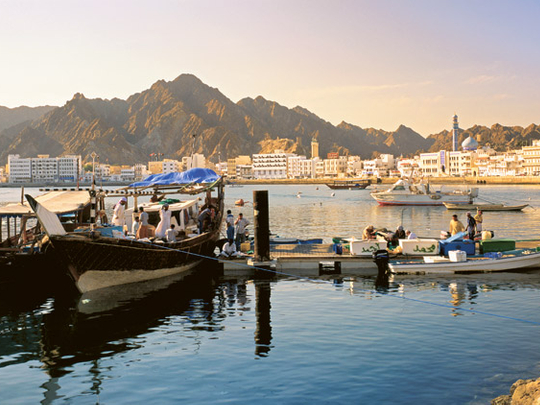
Muscat: Oman has increased its expenditure to 30 billion Omani riyals (Dh286.46 billion) in the eighth five-year plan. This represents an increase of 113 per cent over the seventh five year plan, according to National Economy Minister Ahmad Bin Abdul Nabi Macki.
Giving details of the 2011 state budget and eighth five-year plan, Macki told the media that the government aimed to maintain the annual growth rate of three per cent while keeping inflation in check.
He said preliminary forecasts project GDP growth at an annual average rate of six per cent at current prices and five per cent at constant prices.
"Also, the inflation rate is expected to remain at an average of 4 per cent for the plan period," he said.
"The plan's fiscal framework has been formulated to serve the objectives of the plan in general and supports the stability and growth of the national economy in particular," said Macki.
The minister said that he maintained the price of oil at $59 (Dh216.67) per barrel as the average price for the plan period that runs until 2015.
Therefore, the annual average of government revenue has been estimated at 7,499 million riyals for the plan period.
Social sector needs
The minister reiterated that government expenditure for the plan period had been estimated so it meets the needs of the social sector's growth and project operation.
"In light of this, the annual average of public expenditure for the plan period is estimated at 8,542 million riyals. In view of this, the annual average deficit of the general budget for the plan period is estimated to be 1043 million riyals and its ratio to total revenues at 13.9 per cent, he added.
He assured in his budget speech that the plan would strive to enhance the economic diversification process by focusing on the development of tourism, industry, agriculture and fisheries.
Macki hopes to see non-oil activities grow by an annual rate of about 10 per cent at current prices and 6 per cent at constant prices in the next five years.
"We would like to see the private sector's share in GDP raised," he said, adding that the plan aimed to continue furthering the private sector's role in the national economy by stimulating domestic and foreign private investments.
With an eye on developing the national work force, the total government expenditure during the eighth plan in the education and health care sectors is expected to rise to 55 per cent and 88 per cent respectively, compared to the seventh plan.
He hopes to see 200,000 to 275,000 new job opportunities created during the eighth plan.
He said that the new projects are estimated at 5.6 billion riyals and the ongoing projects expected to be carried forward from the seventh plan at 6.4 billion riyals.
"Therefore, the total approbations for the programme [new and ongoing projects] will amount to 12 billion riyals compared to 3 billion riyals as actual approbations for the seventh plan," he said.
Macki also announced that the total cost of projects the government will finance outside the framework of the development programme is estimated at 8.8 billion riyals.
- $59: average price of oil expected for the plan
- 4%: average inflation rate expected for the period












